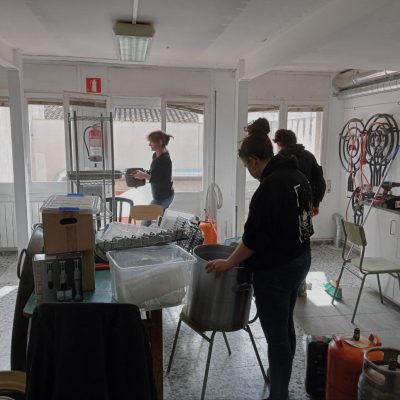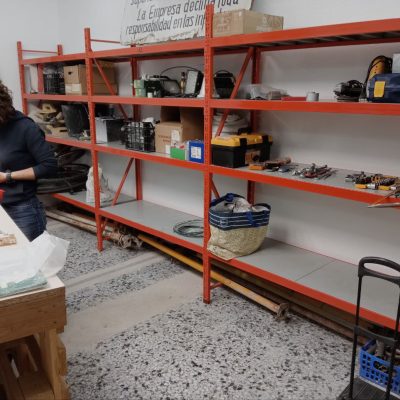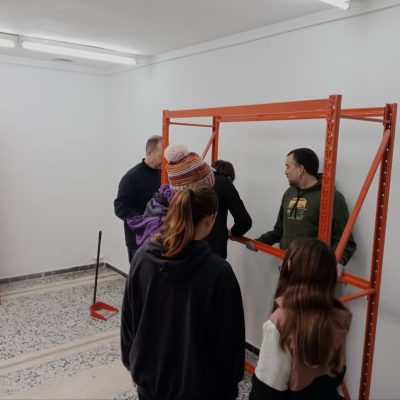This post is also available in: Català (Catalan) Español (Spanish)
The City Council of Premià de Mar has signed with the company Nuñez y Navarro the expropriation act for the property of Can Sanpere, the former textile factory defended by the neighbourhood for 20 years and with a self-management project for the last 10 years.
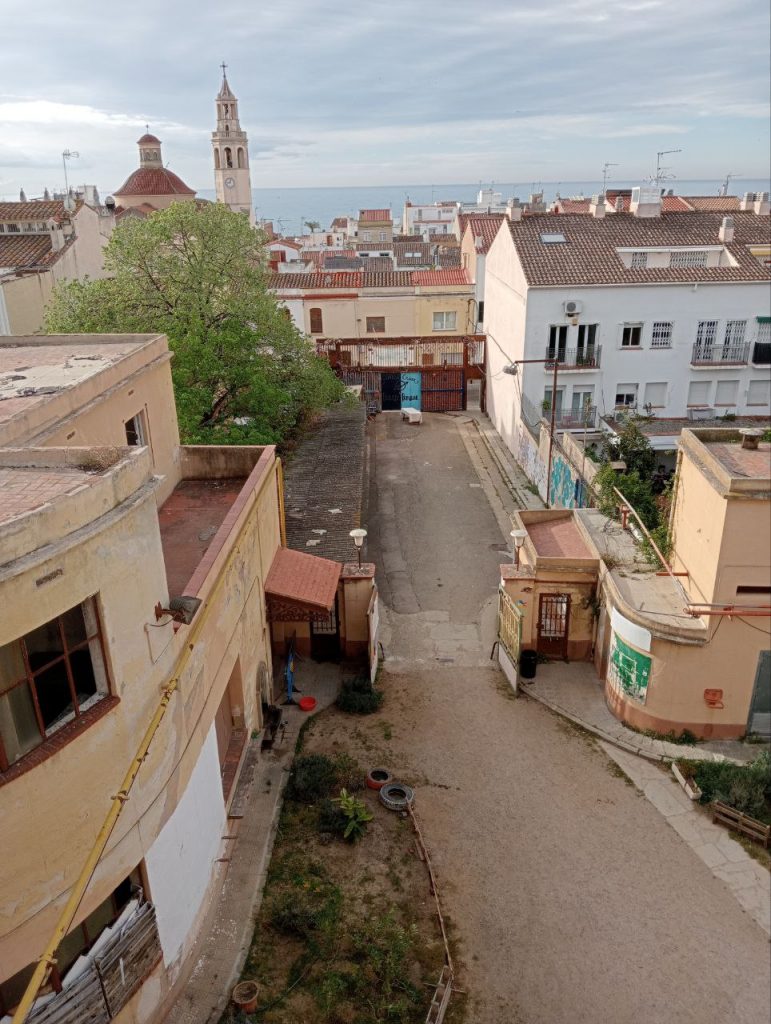
On February 22nd 2024, the City Council of Premià de Mar signed the act of expropriation of the factory site of Can Sanpere with Nuñez and Navarro. Therefore, the town council takes possession and becomes the owner of the property. The process is not yet complete because the former owner can still make a claim and try to raise the price. But it is a decisive step towards consolidating what for years has been the motto of this struggle: “Can Sanpere belongs to the people”.
The expropriation was set in motion by neighbourhood pressure led by Can Sanpere Association (created to bring together the collectives that occupied the factory and all the people in favour of its self-management) to sign an agreement with the City Council on 14 April 2023. In this agreement, the Can Sanpere assembly agreed to temporarily abandon the factory on the condition that the expropriation would be carried out, that the city council would cede a space to continue with the activities and that they would work together on the rehabilitation and self-management project.
Can Sanpere’s activity has continued in a nearby building, on Carrer Miquel Moragas in the same town, and two working groups have been created in its assembly to oversee the rehabilitation project and community self-management respectively.
Can Sanpere’s work day in the temporary space in Carrer Moragas, February 24, 2024.
Can Sanpere is an old textile factory of more than 9,000m2 that became the property of Núñez y Navarro, one of the great speculating companies in Catalonia, when the factory activity declined. On April 3, 2013, a group of neighbors decided to enter and occupy the factory in the face of the threat of demolition of a space considered historical memory.
Since then, the assembly of Can Sanpere has demanded the expropriation of the property, as well as the protection of part of the factory, the creation of a green area and the transfer of use of the protected space for community self-management by the collective. During all these years, several small victories have been working towards this outcome, such as the yes victory in a consultation on expropriation in 2014 and the protection of part of the factory as a BCIL (Cultural Property of Local Interest) and the cataloguing of part of the site as green space.
During all these years of struggle and defence of space, Can Sanpere suffered an eviction in 2017. The following year, the assembly returned to recover the factory, and since then four more launches have been resisted. Since 2013, Can Sanpere has been home to dozens of social, political and cultural groups, not only from Premià de Mar but also from the entire Maresme region and even other initiatives from other places in Catalonia and Spain.
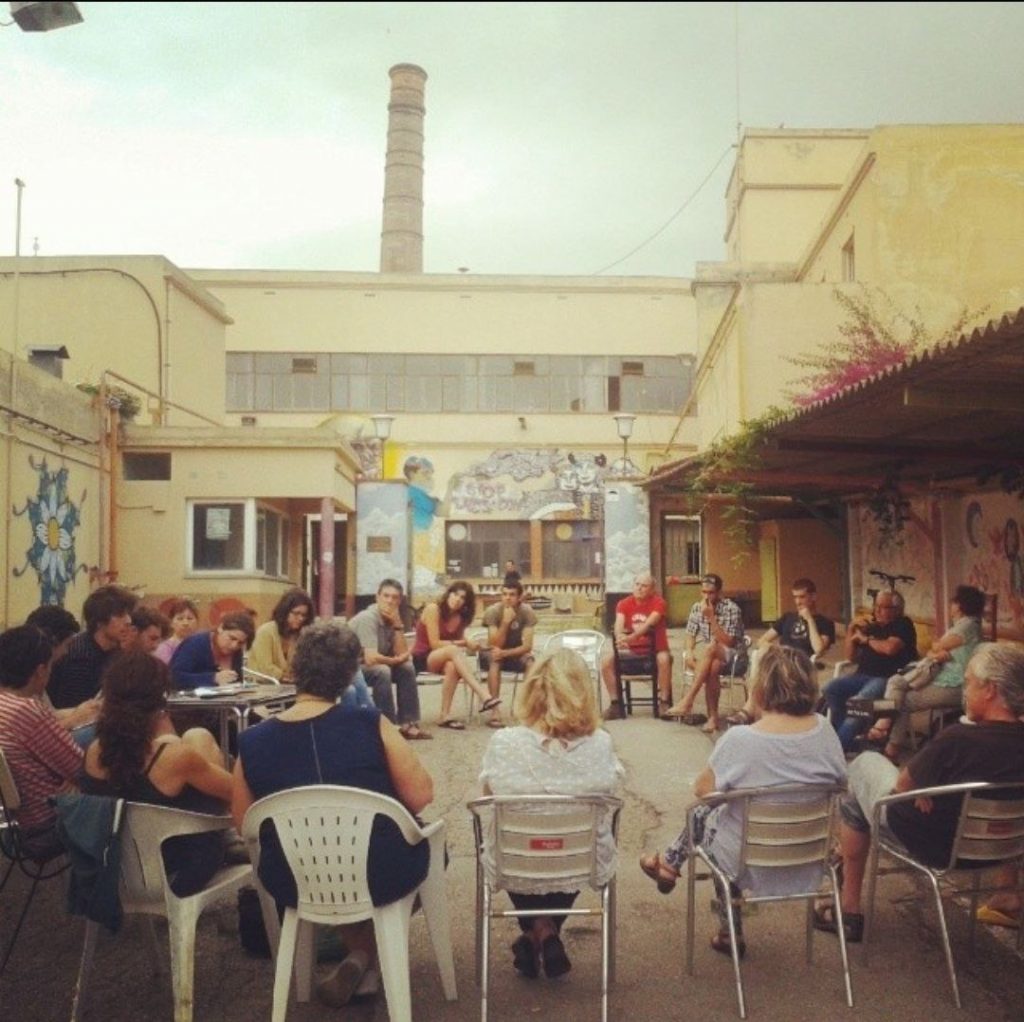
The case of Can Sanpere is similar to that of Can Batlló (Sants, Barcelona) or Coma Cros (Salt, Gironès), factory sites that have been saved from real estate speculation thanks to the neighbourhood struggle and that are now community-managed. And also in other cases around the world, such as the Ex-Assilo Filangieri in Naples, La Friche in Marseille or Batiment7 in Montreal.
In May 2022 the cooperative femProcomuns, by an agreement of our Trunk assembly, we decided to support Can Sanpere and join the community management project as an organisation. We share the satisfaction that this project is taking steps towards this objective.
See also

